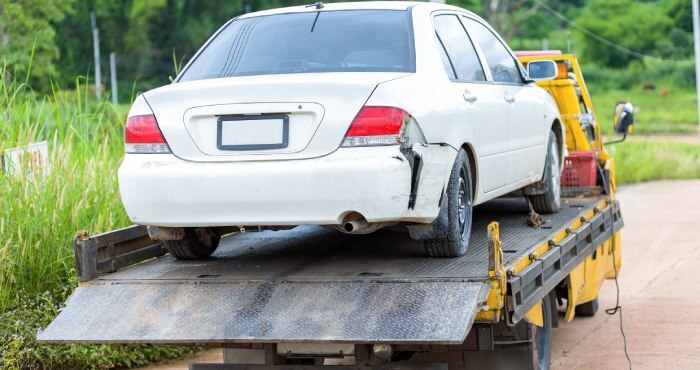When a newly acquired vehicle begins to experience issues such as stalling, shaking, or displaying warning lights, the underlying issue is frequently faulty components that continue to malfunction even after attempts at repair. In California, this situation escalates from a frustrating mechanical problem to a legal confrontation. This is where experts in Lemon Law come into play, assisting drivers in identifying concealed defects, ensuring manufacturers are held responsible, and securing refunds or replacements.
How defective parts hide — the anatomy of a modern “lemon”
Contemporary vehicles integrate electronics, software, and mechanical systems, making it challenging to identify faults. Issues may not always be obvious; they can manifest sporadically or provoke additional problems that obscure their true source.
Frequent warning lights on the dashboard, unusual sounds, sporadic failures of components, or drops in performance under specific conditions often indicate underlying issues. These defects can arise from malfunctioning sensors, control modules, or subpar parts that fail unpredictably.
When dealerships resort to temporary solutions rather than tackling the fundamental issue, car owners find themselves stuck in a loop of ongoing repairs. This “conspiracy effect” leads to frustration among drivers, consumes valuable time, and leaves many uncertain about their rights and protections.
California’s Lemon Law — your legal magnifying glass
California’s Lemon Law, officially known as the Song-Beverly Consumer Warranty Act, stands out as one of the most robust consumer protection laws in the United States. This legislation aims to assist purchasers who find themselves with a vehicle that has significant defects affecting its usability, value, or safety — defects that the manufacturer fails to remedy after a reasonable number of attempts.
Key Criteria of the Law
- The defect must be covered under the vehicle’s warranty.
- The defect should significantly hinder the vehicle’s use, value, or safety.
- There must have been a reasonable number of repair attempts by an authorized dealer, or the vehicle should have been out of service for a total of days that typically adds up to around 30 days, although this can vary based on specific circumstances.
- The manufacturer or dealer must be notified, providing them with a chance to address the issue.
Under the Lemon Law, manufacturers may be required to replace a defective vehicle or refund its purchase price (adjusted for reasonable use), often including reimbursement for legal fees and related expenses like towing, rentals, and repairs.
How Lemon Law champions unmask defective parts
Building the evidence
Building a strong Lemon Law case begins with gathering detailed documentation. This includes keeping all repair invoices with dates, dealer notes, and descriptions of the services performed. Independent mechanic or engineer evaluations can help confirm that the problems are caused by a common defective component.
Additionally, photos and videos of the vehicle when it was inoperable, along with records of emails, texts, and written correspondence with the dealer or manufacturer, provide crucial evidence to support your claim.
A skilled Lemon Law attorney organizes this information into a clear, chronological timeline. By analyzing repair records, they can spot patterns such as repeated part replacements, recurring diagnostic trouble codes, or temporary fixes that don’t resolve the issue. This careful presentation highlights the persistent nature of the defect and significantly strengthens the consumer’s position in pursuing compensation.
Lemon Law champions in Coronado, California, unmask defective parts by documenting issues, pursuing proper repairs, and using legal action to hold manufacturers accountable.
Legal tactics that expose the problem
Lemon Law cases progress when lawyers move from reviewing repair records to taking legal action. They send demand letters signaling a potential lawsuit, and discovery can uncover internal documents showing the manufacturer knew of the defect. Expert testimony can confirm design or manufacturing flaws. Armed with this evidence, attorneys negotiate buybacks or replacements, proving the car’s reduced value and the owner’s ongoing issues, pushing manufacturers toward accountability.
Real steps consumers should take now.
Immediate Steps
- Retain all repair invoices and orders; do not discard any documentation.
- Document the dates and details of issues, including instances when the vehicle was inoperable.
- Capture brief videos of sporadic problems (such as warning lights or unusual sounds).
- Inform the dealership and manufacturer in writing about persistent issues, ensuring you keep copies of all correspondence.
- Refrain from seeking unauthorized repairs that could jeopardize your warranty, unless absolutely necessary for safety reasons.
When to Reach Out to a Lemon Law Attorney
If your car has undergone multiple repairs for the same or related issues, or if it has been out of commission for an extended period, it’s advisable to consult a Lemon Law attorney. Many provide free initial consultations and operate on a contingency fee basis (they only receive payment if you win). Seeking legal advice early can help you avoid mistakes, such as settling for inadequate compensation or missing the deadline for filing claims.
What to expect during a claim
Advocates of Lemon Law typically initiate the process with a demand letter and engage in negotiations, often resolving disputes before they reach the courtroom. In instances where a settlement isn’t achieved, litigation can prompt the discovery of evidence and the inclusion of expert witnesses, resulting in outcomes such as the repurchase or replacement of the vehicle, or financial compensation.
Additionally, California law frequently includes coverage for incidental costs and legal fees. Furthermore, successful cases not only benefit individual consumers but also encourage manufacturers to enhance product quality, initiate recalls, and safeguard other buyers.
Key Lemon Law Car Defect Statistics
| Statistic | Insight |
| 150K+ vehicles | Sold yearly in U.S. with hidden defects |
| 1 in 10 cars | On CA roads may be a “lemon” |
| 70% cases | Involve safety defects (brakes, airbags, etc.) |
| 90%+ cases | Settled in favor of consumers via attorneys |
| Billions lost | Hidden costs from bad parts & repairs |
Final word — don’t accept the patch job
Faulty automobile components frequently lurk within intricate systems, leading to anxiety, financial burdens, and potential safety hazards. An attorney specializing in Lemon Law in San Diego can assist consumers in recording their concerns, seeking necessary repairs, and taking steps when issues continue to arise, utilizing legal measures to expose defects that remain concealed.




